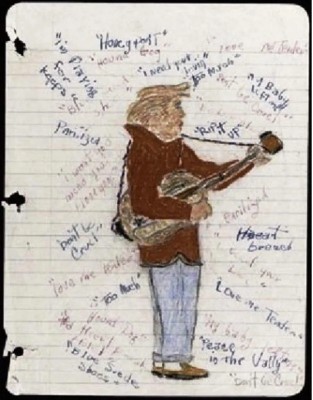Alfred Worden: The Most Isolated Person in History and First Astronaut to Walk in Deep Space
In the vastness of space, isolation takes on an entirely different meaning. For Alfred Merrill Worden, an American astronaut, engineer, and test pilot, isolation wasn't just about being alone; it was about being the farthest from any other human being in history.
During the Apollo 15 mission in 1971, Worden orbited the Moon 74 times, alone in the command module (CM) Endeavour, while his crewmates explored the lunar surface. This extraordinary experience earned him the title of the "most isolated human being."
Early Life and Path to Space
Born on February 7, 1932, in Jackson, Michigan, Worden’s early life was a blend of rural simplicity and academic ambition. After spending his formative years on farms, he attended the University of Michigan for a year before receiving an appointment to the United States Military Academy at West Point. Graduating in 1955, Worden chose to join the United States Air Force, despite having no prior flying experience. His natural aptitude for aviation led him to become a skilled fighter pilot and eventually a test pilot, a role that perfectly prepared him for his future as an astronaut.
In 1966, Worden was selected as part of NASA’s Group 5 astronauts. His early contributions to the space program included serving on the support crew for Apollo 9 and as the backup crew for Apollo 12. By 1970, Worden was selected as the command module pilot for Apollo 15, alongside Commander David Scott and Lunar Module Pilot James Irwin.
The Journey to Isolation
Apollo 15 was a landmark mission, marking the first of the "J missions," which featured extended stays on the lunar surface and a greater emphasis on scientific exploration. While Scott and Irwin explored the Moon’s Hadley-Apennine region using the Lunar Roving Vehicle (LRV), Worden remained in lunar orbit, managing the command module and conducting a separate scientific mission from his crewmates.
Once Scott and Irwin departed in the lunar module Falcon, Worden found himself alone in space, with only the command module Endeavour for company. His duties during this period were crucial to the mission’s success, including photographing the Moon’s surface and operating a suite of scientific instruments housed in the spacecraft’s service module (SM).
Worden’s experience of isolation was both profound and surreal. At his farthest distance, he was 2,235 miles (3,597 kilometers) away from his fellow astronauts on the lunar surface. This extraordinary distance made him the most isolated human being in history—a record that still stands.
A Glimpse into Infinity
Despite the immense responsibility of his tasks, Worden found time to reflect on his unique situation. From his vantage point, he observed the Moon, Earth, and the stars in a way that few humans ever have. The sheer vastness of space, combined with the intense clarity of the stars, gave him a profound sense of humanity’s smallness in the universe. Worden later remarked on the experience, noting that it challenged his understanding of the universe and the human species’ place within it.
“I didn’t come to any conclusions,” he said. “I still don’t know what is out there. What I strongly sensed is that we as a species have not yet experienced enough of the universe. Whatever we believe now is probably not accurate. We have developed our ideas based only on what we can see, touch, and measure. Now I was having a glimpse into infinity and could only dimly sense, not understand, the journey ahead for humans.”
This philosophical reflection underscored the isolation Worden experienced, not just physically but existentially. In the silence of space, with no other humans nearby and minimal communication with Earth, Worden contemplated the enormity of the universe and humanity’s quest to understand it.
Return to Earth and Legacy
After completing his solitary mission in lunar orbit, Worden rejoined Scott and Irwin for the journey back to Earth. On the return trip, he performed the first-ever deep-space extravehicular activity (EVA), stepping outside the spacecraft to retrieve film cassettes from the command module’s exterior. This spacewalk, conducted farther from Earth than any other in history, further cemented Worden’s place in the annals of space exploration.
The Apollo 15 mission concluded with a successful splashdown in the Pacific Ocean. However, controversy soon followed the crew’s return. They were reprimanded by NASA for carrying unauthorized postal covers to the Moon, leading to Worden and his crewmates being barred from future spaceflights. Despite this setback, Worden continued to contribute to the space program, working at NASA’s Ames Research Center until 1975 before transitioning to the private sector.
In his later years, Worden remained active in the space community, particularly through his involvement with the Astronaut Scholarship Foundation, where he served as chair of the board of directors. He also made numerous public appearances, advocating for a renewed commitment to space exploration and education in the sciences.
Alfred Worden passed away on March 18, 2020, leaving behind a legacy of exploration and introspection.
Get Free Gifts & Best Stories!
Join our newsletter to get our top stories of the month and free merch.
- 📚 Cool Stories: Read stories you won’t find in textbooks.
- 🎁 Free Gifts: Get exclusive stickers, t-shirts, and more!
Only 1 email a month. No spam, we promise!

